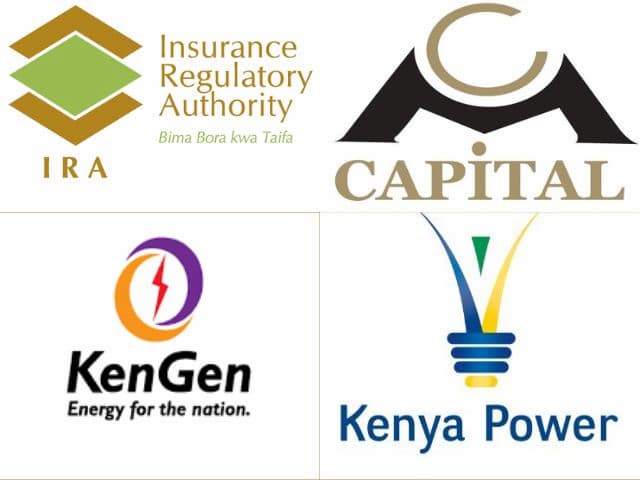Parastatals are a fascinating aspect of governance and economic growth. How many parastatals are there in Kenya?
What are their functions? Who manages them? Are state corporations and parastatals synonymous?
Many know them as offering the best-paying jobs in the country, even at entry level.
Parastatals are state-owned agencies that run under government ministries.
They facilitate economic growth by supporting important and sensitive functions of the government.

How Many Parastatals Are There In Kenya?
As of September 2022, there were 247 government parastatals in Kenya.
201 function as social corporations, while 46 are commercial or profit-generating companies. Parastatals help the government in running its essential functions.
In 2023, the State showed interest in reducing the number of parastatals due to their redundancy in function, such as duplication and lack of productivity.
Since the parastatals depend on state funding, their non-performance or duplication of roles becomes a waste of government funds.
The Privatization Bill presented to the Kenya Parliament in 2023 allows the sale of these government corporations.
It is upon the National Treasury, according to this Bill, to dispose of those corporations without consulting Parliament.
Therefore, the State formed the Privatization Authority to run under the Treasury to sell or privatise those state enterprises.
That development shows the need to check Treasury updates to know how many state corporations are in Kenya.
The following are the types of parastatals currently running in Kenya as classified depending on their core functions.
- Energy generation
- Promotion of local products
- Tourism
- Insurance
- Publishing
- Venue hiring
- Telecommunication
- Distribution and retail selling
- Banking
- Pension fund management
- Research
- Manufacturing and marketing
- Training
- Regulatory
Are State Corporations Similar To Parastatals?
State-owned agencies describe all corporations owned by the government.
The government controls them in every aspect. On the other hand, parastatals are companies co-owned by the government.
Their functions serve the government indirectly or directly, depending on their nature and role.
Parastatals have political influence on the State.
Unlike state-owned corporations that solely belong to the State, for parastatals, other entities co-own the organisations with the government through shares.
Here the government is the largest shareholder. Parastatals function under ministries where they support that ministry’s functions and, eventually, the government’s functions.
However, ‘parastatals’ broadly refers to state-owned and co-owned agencies regardless of their differences.
The notable features of parastatals are another pointer in answering the question: How many parastatals are there in Kenya?
The following features can help identify a parastatal and hence succeed in listing and counting such organisations in Kenya.
- The Parliament passes an act to pass them or dissolve them
- The government appoints their managers
- Their main funding comes from the government
- They are not profit-oriented organisations
- Where they generate revenue, they surrender the surplus to the government
- They run on limited liabilities; otherwise, the government terms them a liability or unproductive and may sell them or dissolve them
- They generate essential and even sensitive products and services
- They have minimal autonomy as they work as extensions of government ministries
Why Does The Government Establish Parastatals?
Through an act of Parliament, the State launches parastatals to support its productivity.
They enhance resource management, and support the implementation of government strategies. The government expects parastatals:
- To improve revenue collection
- To provide essential and unique services and goods at reasonable or subsidised costs
- To be stimulants of economic development
- To minimise foreign influence, for instance, by promoting local values and brands
- To generate employment
- To manage businesses with a large start-up capital demand
- To handle and manage sensitive functions such as printing the national currency, producing firearms
- To respond to special social needs
Working In Parastatals: Autonomy and Payment
The government regulates state corporations through The Inspectorate of State Corporations and oversees their functions.
Government appointees manage these organisations. This Inspectorate ensures they comply with the set rules, procedures, and policies for professionalism and productivity.
Through this Inspectorate, the government through the Inspectorate recovers any funds mismanaged or lost funds by surcharging those involved in the Inspectorate.
The Inspectorate conducts audits of state corporations and informs the government about the organisations’ performance and viability.
In terms of remuneration of employees, employment opportunities in parastatals are plum jobs.
They offer hefty monthly salaries, high allowances, and other attractive fringe benefits.
Most pay well above what the usual ministry jobs pay, even for entry and graduate trainee positions.
An analysis of salary scales in Kenya shows that the best-paying parastatals in Kenya pay close to Kshs 1 million gross in monthly salaries and allowances to top managers and CEOs.
Other employees rarely earn a gross salary of less than Kshs 100,000 monthly, even for junior positions.
The Kenya Salary and Remuneration uses a grading system for workers and places parastatals into classes depending on their pay scales.
Higher qualifications and excellent performance attract promotions and high pay.
Pay scales in the best-paying parastatals in Kenya for entry-level employees who are graduates with no work experience make these jobs competitive.
Parastatals Often Headhunt The Best Talent…
The following are figures showing the parastatals with the best salaries in Kenya at the entry level.
- Capital Markets Authority
Kshs. 200,000
- Kenya Civil Aviation Authority
Kshs. 180,000
- Central Bank of Kenya
Kshs 160,000
- Nairobi Securities Exchange
Kshs 150,000
- Insurance Regulatory Authority
Kshs 150,000
- KenGen
Kshs 140,000 to Kshs 180,000
- Kenya Pipeline
Kshs. 140,000
- Kenya Airports Authority
Kshs. 130,000
- The Kenya Communication Authority of Kenya
Kshs 130,000
- National Security and Intelligent Service
Kshs 120,000
- NTSA
Kshs. 120,000
- Kenya Power
Kshs 120,000
Conclusion
Parastatals and state-owned corporations remain one of the major vehicles driving the government’s Vision 2030 agenda.
Their activities support the government in enhancing economic growth.
They consistently supply goods and services, manage government resources and revenue, and improve social welfare.
With the recent government move to privatise, merge, and dissolve some of these organisations, many will often ask, how many parastatals are there in Kenya?
Also, those lucky to get the lucrative job opportunities offered by parastatals live large. These are some of the best-paying jobs in Kenya.


